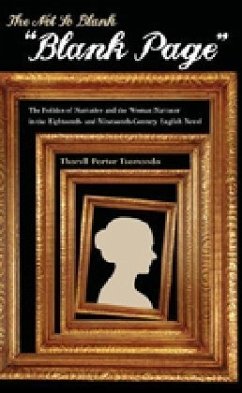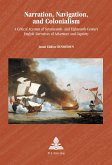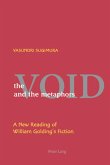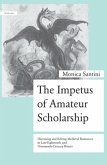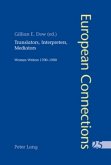A fascinating and underexplored feature of the English eighteenth- and nineteenth-century novel is that, whether written by man or woman, the "female"-narrated text codes and thematizes narrative travail. Female self-telling in these works is impelled and accompanied by psychic, rhetorical, even physical pain. This book focuses on this phenomenon, beginning with a non-essentialized definition of a "woman's text." Thorell Porter Tsomondo offers a fresh and useful frame of reference for understanding the tradition - present from the origins of the novel - of narrative from a marginalized position, a position instructed not just by gender but by class, colonial and postcolonial politics, and the exigencies of the narrative terrain itself.
Bitte wählen Sie Ihr Anliegen aus.
Rechnungen
Retourenschein anfordern
Bestellstatus
Storno

